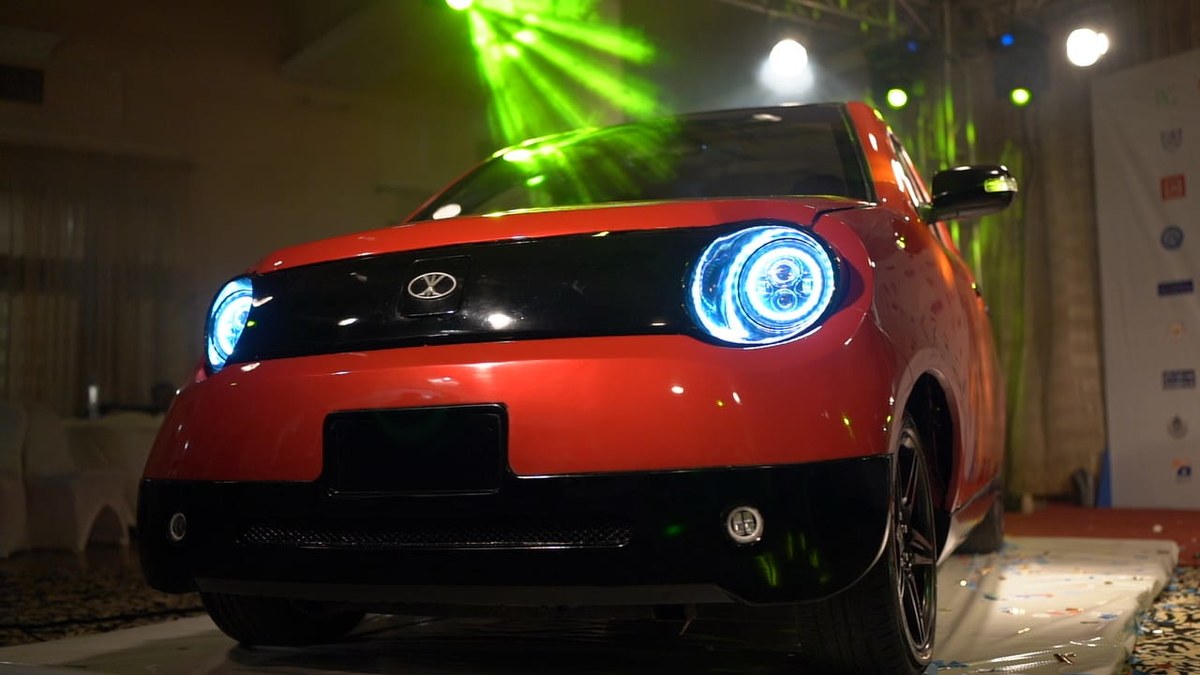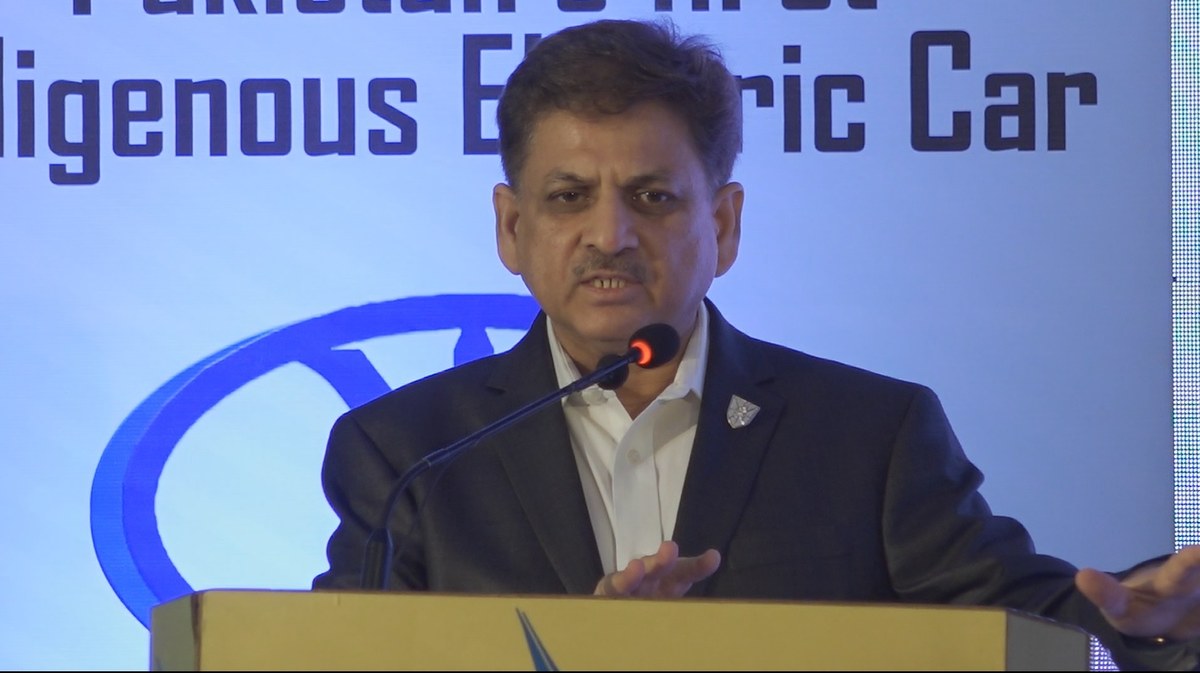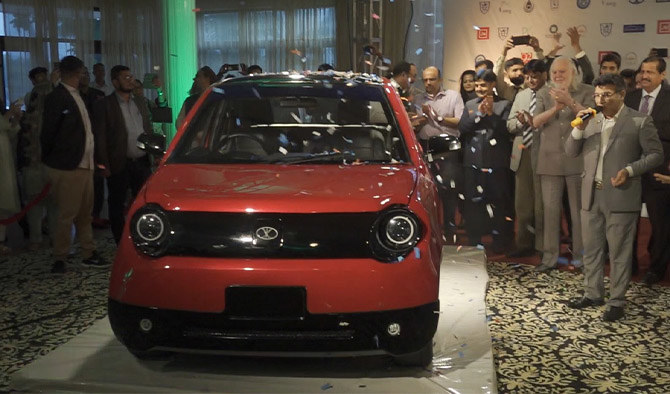KARACHI: A foundation of Pakistani-American motor engineers on Sunday launched the prototype of the country’s first indigenous electric vehicle developed in collaboration with local university students and expected to hit the road by the end of 2024.
The manufacturers of Nur-E 75 launched the vehicle on Pakistan’s diamond jubilee, hoping it would contribute to the national economy and help improve the country’s environment.
Pakistan approved the National Electric Vehicle Policy in November 2019 to reduce its oil import bill and address the issue of air pollution. The policy also intended to convert 100,000 cars and 500,000 two- and three-wheelers into electric vehicles within a span of four years.
DICE Foundation, a US-based non-profit organization, started working on the country’s first electric car in the same year with the help of local universities and industry to meet the country’s transportation needs by utilizing less energy.
“Today, on the 75th birthday of Pakistan, Alhamdulillah [praise be to God], we are able to launch five-seater hatchback electric car,” Dr. Khurshid Qureshi, the foundation’s chairman, told Arab News while unveiling the prototype.
“The actual car will be produced and will be in the hands of consumers at the end of 2024,” he said, adding the prototype was made by Pakistani expatriates based in different parts of the world, many of whom were academics and industry experts.

A prototype of Pakistan’s first ingenious electric vehicle, Nur-E 75, which was launched in Karachi, Pakistan, on August 14, 2022. (DICE Foundation)
“We have very thoroughly tested [it] so far,” he continued. “We drove it at about 130 kph [kilometer per hour]. It works very fine, it has a 35-kilowatt-hour battery, 108 HP [horsepower] motor and gives about 210 kilometers in one charge [which costs Rs900].”

Dr. Khurshid Qureshi, chairman of the US-based DICE Foundation, addresses the ceremony to launch Nur-E 75, the prototype of Pakistan’s first ingenious electric vehicle, in Karachi, Pakistan, on August 14, 2022. (AN Photo)
“Pakistan has tried a couple of times to make its own car but was not successful,” Qureshi added. “This is the first indigenous electric car of Pakistan ... We have designed it, we have developed it, and we are proud of it.”
The car has been named Nur-E 75, with the first word referring to light and the number implying the 75th independence anniversary of Pakistan. The company, which will manufacture and sell the car, has been named after the 12th century Muslim scientist Ismail Al-Jazari.
According to an estimate, the global market for batteries will be around $120 billion in the next five to six years which is likely to have a huge impact on Pakistan’s economy since the plan is to manufacture the car for both domestic and international markets.
The top official of DICE Foundation said battery was one of the most important components of the car which would be developed by students of NED University in Karachi under the supervision of his team of experts.

A prototype of Pakistan’s first ingenious electric vehicle, Nur-E 75, which was launched in Karachi, Pakistan, on August 14, 2022. (AN Photo)
“That’s how we actually work with the students in universities and provide the expertise in many projects,” he said.
Qureshi said funds would be required in the next stage for the mass commercial generation of the car, which would cost customers about $19,000.
“This is a very big project of $60 to $80 million,” he added. “And we will be looking for financers and investors who will be willing to invest in this venture.”
Qureshi said Pakistan had never produced its own car in the last 75 years.
“It is extremely important for any nation,” he said. “Car is a pride of any nation. It is important for the people to save money also.”
He added if Pakistan did not pay attention to this area, it would not be able to pay back its loans.
“It is very, very important for Pakistan from economic prosperity perspective,” Qureshi said.



















